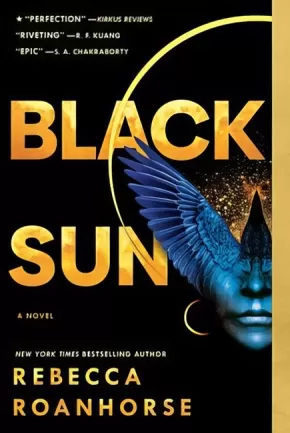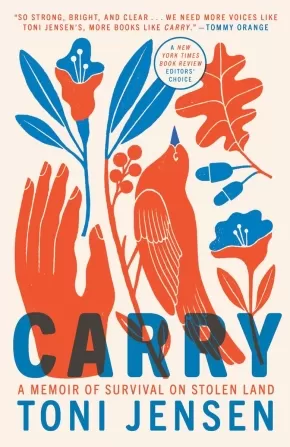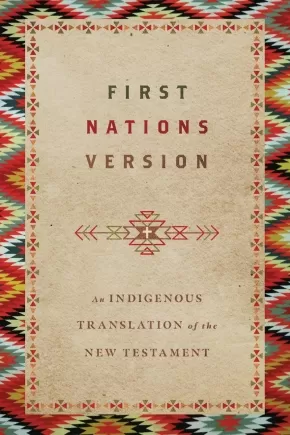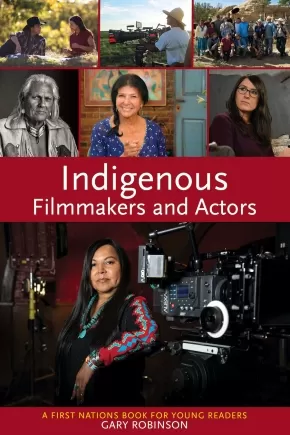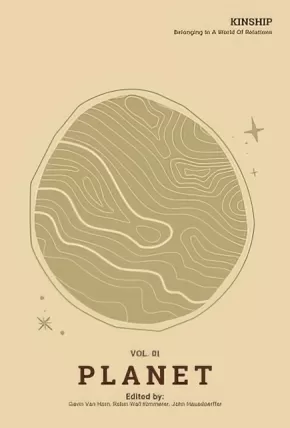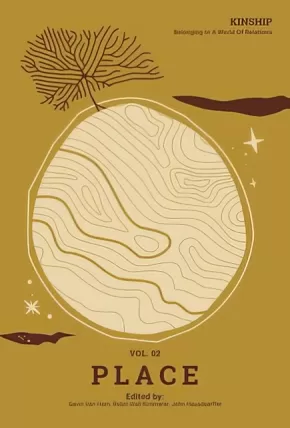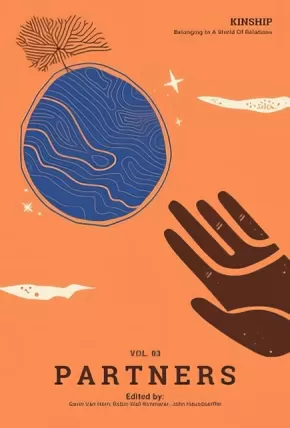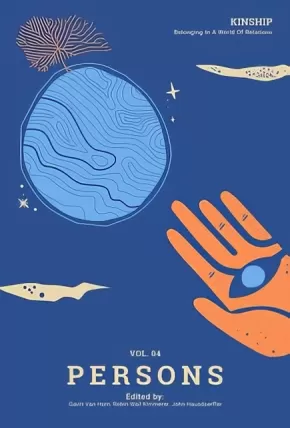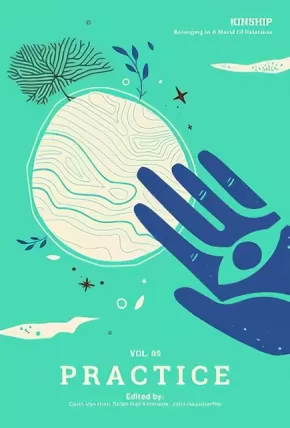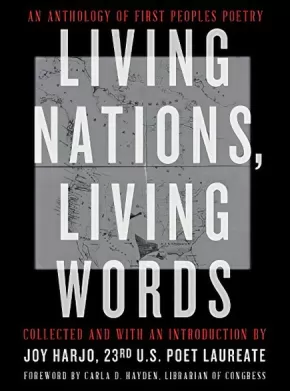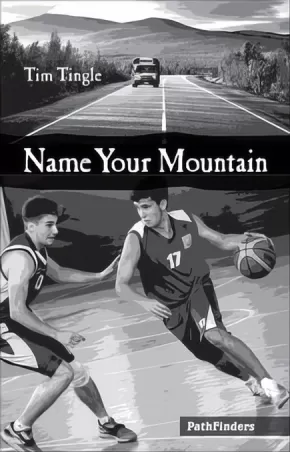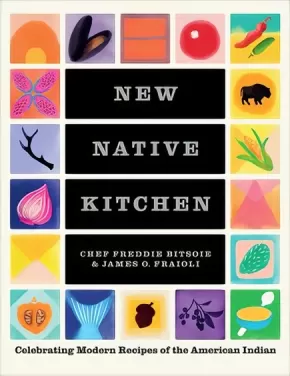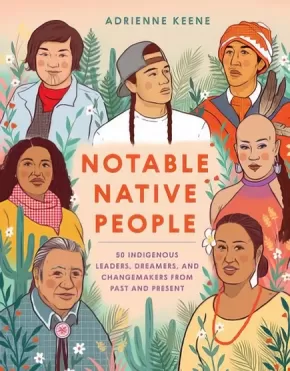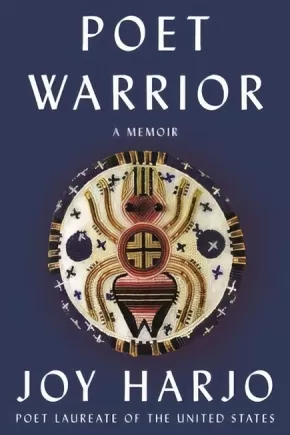
Indigenous Peoples in the United States
121
-
135
of
225 Results;
Sort By
Go To
of 15
Black Sun: A Novel (PB)
$24.99
Format:
Paperback
Text Content Territories:
Indigenous;
ISBN / Barcode: 9781534437685
Synopsis:
Synopsis:
A god will return
When the earth and sky converge
Under the black sun
In the holy city of Tova, the winter solstice is usually a time for celebration and renewal, but this year it coincides with a solar eclipse, a rare celestial event proscribed by the Sun Priest as an unbalancing of the world.
Meanwhile, a ship launches from a distant city bound for Tova and set to arrive on the solstice. The captain of the ship, Xiala, is a disgraced Teek whose song can calm the waters around her as easily as it can warp a man’s mind. Her ship carries one passenger. Described as harmless, the passenger, Serapio, is a young man, blind, scarred, and cloaked in destiny. As Xiala well knows, when a man is described as harmless, he usually ends up being a villain.
Crafted with unforgettable characters, Rebecca Roanhorse has created an epic adventure exploring the decadence of power amidst the weight of history and the struggle of individuals swimming against the confines of society and their broken pasts in the most original series debut of the decade.
Reviews
“Rebecca Roanhorse… [is one] of the Indigenous novelists reshaping North American science fiction, horror and fantasy — genres in which Native writers have long been overlooked.” — The New York Times
"The pages turn themselves. A beautifully crafted setting with complex character dynamics and layers of political intrigue? Perfection. Mark your calendars, this is the next big thing." — Kirkus, starred review
"A a razor-sharp examination of politics, generational trauma, and the path to redemption...Roanhorse strikes a perfect balance between powerful worldbuilding and rich thematic exploration as the protagonists struggle against their fates. Fantasy fans will be wowed." — Publishers Weekly, starred review
Educator & Series Information
This is the first book in the Between Earth and Sky Series.
Additional Information
496 pages | 6.00" x 9.00"
Borders (Graphic Novel)
$22.99
Artists:
Format:
Paperback
Text Content Territories:
Indigenous Canadian; First Nations; Blackfoot Confederacy (Siksikaitsitapi);
ISBN / Barcode: 9781443460675
Synopsis:
Synopsis:
From celebrated Indigenous author Thomas King and award-winning Métis artist Natasha Donovan comes a powerful graphic novel about a family caught between nations.
Borders is a masterfully told story of a boy and his mother whose road trip is thwarted at the border when they identify their citizenship as Blackfoot. Refusing to identify as either American or Canadian first bars their entry into the US, and then their return into Canada. In the limbo between countries, they find power in their connection to their identity and to each other.
Borders explores nationhood from an Indigenous perspective and resonates deeply with themes of identity, justice, and belonging.
Reviews
"Borders is a graphic novel adaptation of one of Thomas King’s short stories exploring identity and belonging themes. This story highlights the significance of a nation’s physical border versus that of an Indigenous perspective. It follows a boy and his mother being asked a question about citizenship and the limbo between nations." - The Dalai Lama Center
Educator Information
Recommended for ages 10 to 14.
Additional Information
192 pages | 6.00" x 9.00" | Paperback
Carry: A Memoir of Survival on Stolen Land
$24.00
Format:
Paperback
Text Content Territories:
Indigenous American; Métis;
Grade Levels: 12; University/College;
ISBN / Barcode: 9781984821201
Synopsis:
Synopsis:
Toni Jensen grew up around guns: As a girl, she learned to shoot birds in rural Iowa with her father, a card-carrying member of the NRA. As an adult, she’s had guns waved in her face near Standing Rock, and felt their silent threat on the concealed-carry campus where she teaches. And she has always known that in this she is not alone. As a Métis woman, she is no stranger to the violence enacted on the bodies of Indigenous women, on Indigenous land, and the ways it is hidden, ignored, forgotten.
In Carry, Jensen maps her personal experience onto the historical, exploring how history is lived in the body and redefining the language we use to speak about violence in America. In the title chapter, Jensen connects the trauma of school shootings with her own experiences of racism and sexual assault on college campuses. “The Worry Line” explores the gun and gang violence in her neighborhood the year her daughter was born. “At the Workshop” focuses on her graduate school years, during which a workshop classmate repeatedly killed off thinly veiled versions of her in his stories. In “Women in the Fracklands,” Jensen takes the reader inside Standing Rock during the Dakota Access Pipeline protests and bears witness to the peril faced by women in regions overcome by the fracking boom.
In prose at once forensic and deeply emotional, Toni Jensen shows herself to be a brave new voice and a fearless witness to her own difficult history—as well as to the violent cultural landscape in which she finds her coordinates. With each chapter, Carry reminds us that surviving in one’s country is not the same as surviving one’s country.
Reviews
“Like a murmuration of starlings, Toni Jensen’s new book Carry changes its shape constantly and effortlessly. . . . The value of Carry lies in its unique structure, its sparse, powerful prose, and in the stinging perspective it provides on events that are numbingly common. Until we see it as clearly as Jensen does, the lens she offers on gun violence in America will be relevant again and again and again.”—Chicago Review of Books
“In Carry, Jensen scours language to find a new way of writing about how historical injustices seep into the present. . . . With a controlled voice like a Philip Glass composition, smooth, meandering yet repetitive, Jensen considers her troubled past and begins the work of stitching herself back together. . . . An unsettling account that creeps into your bones.”—The New York Times Book Review
“Toni Jensen grew up around guns. But bird-hunting with her father was a much different experience than staring down bored barrels at Standing Rock. A new and much-needed voice, Métis author Jensen shares her deepest thoughts and most emotional experiences in Carry.”—Bustle
“Toni Jensen’s memoir is stunning. There’s no other words that come to mind—it’s about growing up Métis, existing as an Indigenous woman in America, and the looming threat of ever-pervasive gun violence. . . . A must-read.”—Alma (Alma’s Favorite Books for Fall 2020)
“Moving between personal recollections and historical observations, Jensen narrates what it means to be Métis, and what it feels like to be connected by bodies and land. . . . A meditative exploration of people and place that shows what it means to live and survive.”—Library Journal
“[A] debut memoir from a Native author enmeshed in the American way of violence, alienation, and death . . . a powerful rejection of a culture that has always been grounded in violence and intimidation.”—Kirkus Reviews
“Carry explores the gun’s tragic impact with heartfelt prose and deep intellect—on politics, on history, on Black and Indigenous bodies, on women’s bodies, and on children behind closed doors . . . It is full of difficult and vital news, delivered right on time.”—Terese Marie Mailhot, New York Times bestselling author of Heart Berries
Additional Information
304 pages | 5.24" x 7.94" | Paperback
First Nations Version: An Indigenous Translation of the New Testament
$28.99
Editors:
Format:
Paperback
Text Content Territories:
Indigenous Canadian; Indigenous American; Native American; Indigenous Central American; Indigenous Peoples in Mexico;
Reading Level: N/A
ISBN / Barcode: 9780830813506
Synopsis:
Synopsis:
A New Testament in English by Native North Americans for Native North Americans and All English-Speaking Peoples
Many First Nations tribes communicate with the cultural and linguistic thought patterns found in their original tongues. The First Nations Version (FNV) recounts the Creator's Story—the Christian Scriptures—following the tradition of Native storytellers' oral cultures. This way of speaking, with its simple yet profound beauty and rich cultural idioms, still resonates in the hearts of First Nations people.
The FNV is a dynamic equivalence translation of the New Testament that captures the simplicity, clarity, and beauty of Native storytellers in English, while remaining faithful to the original language of the Bible. The culmination of a rigorous five-year translation process, this new Bible translation is a collaboration between organizations like OneBook and Wycliffe Associates, Indigenous North Americans from over twenty-five different tribes, and a translation council that consisted of twelve Native North American elders, pastors, young adults, and men and women from different tribes and diverse geographic locations. Whether you are Native or not, you will experience the Scriptures in a fresh and new way.
Read these sample passages to get a taste of what you'll find inside:
"The Great Spirit loves this world of human beings so deeply he gave us his Son—the only Son who fully represents him. All who trust in him and his way will not come to a bad end, but will have the life of the world to come that never fades—full of beauty and harmony. Creator did not send his Son to decide against the people of this world, but to set them free from the worthless ways of the world." John 3:16-17
"Love is patient and kind. Love is never jealous. It does not brag or boast. It is not puffed up or big-headed. Love does not act in shameful ways, nor does it care only about itself. It is not hot-headed, nor does it keep track of wrongs done to it. Love is not happy with lies and injustice, but truth makes its heart glad. Love keeps walking even when carrying a heavy load. Love keeps trusting, never loses hope, and stands firm in hard times. The road of love has no end." 1 Corinthians 13:4-8
Reviews
"While Wildman recasts the New Testament in a distinctly Indigenous image, he remains faithful to evangelical interpretations of Christian scripture, typified in the many italicized explanations that appear throughout and are meant to add 'reasonably implied' clarifications and cultural notes, such as explication on ancient festivals like the Pentecost. This remarkable retelling offers plenty of rewards and will especially pique those open to a novel interpretation of the religious text." — Publishers Weekly starred review, August 2021
"Reading the First Nations Version of the New Testament is like listening to a wise elder pass down ancient teachings. Its oral cadences give the Scriptures new room to breathe. While contemporary translations focus on updating language in a modern mode, the FNV recaptures the sense of tradition that binds faithful readers to our past and to the story that tells us who we are. It is a good gift to everyone who walks the Jesus Way." — L. Daniel Hawk, professor of Old Testament and Hebrew at Ashland Theological Seminary
"From the beginning, the story of Jesus has been a translated story. Jesus spoke in Aramaic, but Matthew, Mark, Luke, and John wrote their Gospels in Greek. The story of Jesus is intended to be translated to every tribe, tongue, people, and nation. That translation is intended, not just permitted, serves to show how we must resist any cultural domination of the gospel. Terry Wildman has done a masterful job of rendering the New Testament into the storytelling motif characteristic of Native Americans. It should tell us something important when we realize how beautifully the story of Jesus can be adapted to the style and vocabulary of indigenous people. I deeply appreciate Terry Wildman's retelling of the story of Jesus for First Nations people. I believe the Great Spirit is pleased." — Brian Zahnd, pastor of Word of Life Church in St. Joseph, Missouri, and author of Beauty Will Save the World
"I've often wondered what it might look like if Jesus incarnated within another culture. Jesus, a first-century Jewish teacher in a corner of Rome's empire, lived, died, and rose as a human being within a specific time and place. What I love about the First Nations Version is how it translates this gospel story into a language of another context: First Nations! So get swept away into the story of the Great Spirit as he invites us to the blessing way of the good road. Read this beautiful retelling of the Scriptures that is not only beneficial for First Nations communities but for all who desire to allow the Great Spirit to transform their imaginations!" — Kurt Willems, pastor and auth
Educator Information
The First Nations Version (FNV) Translation Council consists of twelve First Nations individuals representing a cross-section of Native North Americans—elders, pastors, young adults, and men and women from differing tribes and diverse geographic locations. This council also represents a diversity of church and denominational traditions to minimize bias. The council determined the style and method of translation to be used and continues to be involved in ongoing translation, review, and cultural consultation. The FNV is a dynamic equivalence translation produced in partnership with Rain Ministries and OneBook Canada, with help from Wycliffe Associates.
AdditionalInformation
512 pages | 6.00" x 9.00" | Paperback
Indigenous Filmmakers and Actors
$10.95
Format:
Paperback
Text Content Territories:
Indigenous Canadian; Indigenous American;
ISBN / Barcode: 9781772601725
Synopsis:
Synopsis:
In these entertaining profiles, twelve Indigenous actors and filmmakers tell stories of the hard work and struggle that went into their careers. Overcoming prejudice and stereotypes in the film industry, fighting to make and promote films that demonstrate an honest portrayal of Indigenous life and heritage. Their stories show how there’s more to filmmaking than acting and directing, including writing, producing, editing, designing, and special effects.
Their accomplishments include acting in major blockbuster films and TV shows, directing prize-winning documentaries, running film programs, and starting a film festival to promote Indigenous voices. These twelve have stood on the shoulders of the Indigenous filmmakers who came before them, and are working to open doors for the next generation. They encourage young people to pursue their dream, and that their stories and ideas are valuable. Includes Tantoo Cardinal, Alanis Obomsawin, and Doreen Manuel.
Educator & Series Information
This book is part of the First Nations Series for Young Readers. Each book is a collection of biographies of First Nations, Métis, and Inuit women and men who are leaders in their fields of work, in their art, and in their communities.
Recommended for ages 9-14.
Subjects:
Language Arts
> Biography
Reflecting Diversity
> First Nations & Indigenous Peoples
Additional Information
128 pages | 6.00" x 9.00"
Kinship: Belonging in a World of Relations, Vol. 1 - Planet
$29.95
Editors:
Format:
Paperback
Text Content Territories:
Indigenous;
Reading Level: N/A
ISBN / Barcode: 9781736862506
Synopsis:
Additional Information
180 pages | 5.27" x 7.75" | Paperback
Synopsis:
Volume 1 of the Kinship series revolves around the question of planetary relations: What are the sources of our deepest evolutionary and planetary connections, and of our profound longing for kinship?
We live in an astounding world of relations. We share these ties that bind with our fellow humans—and we share these relations with nonhuman beings as well. From the bacterium swimming in your belly to the trees exhaling the breath you breathe, this community of life is our kin—and, for many cultures around the world, being human is based upon this extended sense of kinship.
Kinship: Belonging in a World of Relations is a lively series that explores our deep interconnections with the living world. The five Kinship volumes—Planet, Place, Partners, Persons, Practice—offer essays, interviews, poetry, and stories of solidarity, highlighting the interdependence that exists between humans and nonhuman beings. More than 70 contributors—including Robin Wall Kimmerer, Richard Powers, David Abram, J. Drew Lanham, and Sharon Blackie—invite readers into cosmologies, narratives, and everyday interactions that embrace a more-than-human world as worthy of our response and responsibility.
With every breath, every sip of water, every meal, we are reminded that our lives are inseparable from the life of the world—and the cosmos—in ways both material and spiritual. “Planet,” Volume 1 of the Kinship series, focuses on our Earthen home and the cosmos within which our “pale blue dot” of a planet nestles. National poet laureate Joy Harjo opens up the volume asking us to “Remember the sky you were born under.” The essayists and poets that follow—such as geologist Marcia Bjornerud who takes readers on a Deep Time journey, geophilosopher David Abram who imagines the Earth’s breathing through animal migrations, and theoretical physicist Marcelo Gleiser who contemplates the relations between mystery and science—offer perspectives from around the world and from various cultures about what it means to be an Earthling, and all that we share in common with our planetary kin. “Remember,” Harjo implores, “all is in motion, is growing, is you.”
Proceeds from sales of Kinship benefit the nonprofit, non-partisan Center for Humans and Nature, which partners with some of the brightest minds to explore human responsibilities to each other and the more-than-human world. The Center brings together philosophers, ecologists, artists, political scientists, anthropologists, poets and economists, among others, to think creatively about a resilient future for the whole community of life.
We live in an astounding world of relations. We share these ties that bind with our fellow humans—and we share these relations with nonhuman beings as well. From the bacterium swimming in your belly to the trees exhaling the breath you breathe, this community of life is our kin—and, for many cultures around the world, being human is based upon this extended sense of kinship.
Kinship: Belonging in a World of Relations is a lively series that explores our deep interconnections with the living world. The five Kinship volumes—Planet, Place, Partners, Persons, Practice—offer essays, interviews, poetry, and stories of solidarity, highlighting the interdependence that exists between humans and nonhuman beings. More than 70 contributors—including Robin Wall Kimmerer, Richard Powers, David Abram, J. Drew Lanham, and Sharon Blackie—invite readers into cosmologies, narratives, and everyday interactions that embrace a more-than-human world as worthy of our response and responsibility.
With every breath, every sip of water, every meal, we are reminded that our lives are inseparable from the life of the world—and the cosmos—in ways both material and spiritual. “Planet,” Volume 1 of the Kinship series, focuses on our Earthen home and the cosmos within which our “pale blue dot” of a planet nestles. National poet laureate Joy Harjo opens up the volume asking us to “Remember the sky you were born under.” The essayists and poets that follow—such as geologist Marcia Bjornerud who takes readers on a Deep Time journey, geophilosopher David Abram who imagines the Earth’s breathing through animal migrations, and theoretical physicist Marcelo Gleiser who contemplates the relations between mystery and science—offer perspectives from around the world and from various cultures about what it means to be an Earthling, and all that we share in common with our planetary kin. “Remember,” Harjo implores, “all is in motion, is growing, is you.”
Proceeds from sales of Kinship benefit the nonprofit, non-partisan Center for Humans and Nature, which partners with some of the brightest minds to explore human responsibilities to each other and the more-than-human world. The Center brings together philosophers, ecologists, artists, political scientists, anthropologists, poets and economists, among others, to think creatively about a resilient future for the whole community of life.
Educator & Series Information
Contributors are both Indigenous and non-Indigenous.
Contributors are both Indigenous and non-Indigenous.
Kinship: Belonging in a World of Relations is a lively series that explores our deep interconnections with the living world. The five Kinship volumes—Planet, Place, Partners, Persons, Practice—offer essays, interviews, poetry, and stories of solidarity, highlighting the interdependence that exists between humans and nonhuman beings. More than 70 contributors—including Robin Wall Kimmerer, Richard Powers, David Abram, J. Drew Lanham, and Sharon Blackie—invite readers into cosmologies, narratives, and everyday interactions that embrace a more-than-human world as worthy of our response and responsibility.
Additional Information
180 pages | 5.27" x 7.75" | Paperback
Kinship: Belonging in a World of Relations, Vol. 2 - Place
$29.95
Editors:
Format:
Paperback
Text Content Territories:
Indigenous;
Reading Level: N/A
ISBN / Barcode: 9781736862513
Synopsis:
Additional Information
204 pages | 5.27" x 7.75" | Paperback
Synopsis:
Volume 2 of the Kinship series revolves around the question of place-based relations: To what extent does crafting a deeper connection with the Earth’s bioregions reinvigorate a sense of kinship with the place-based beings, systems, and communities that mutually shape one another?
We live in an astounding world of relations. We share these ties that bind with our fellow humans—and we share these relations with nonhuman beings as well. From the bacterium swimming in your belly to the trees exhaling the breath you breathe, this community of life is our kin—and, for many cultures around the world, being human is based upon this extended sense of kinship.
Kinship: Belonging in a World of Relations is a lively series that explores our deep interconnections with the living world. The five Kinship volumes—Planet, Place, Partners, Persons, Practice—offer essays, interviews, poetry, and stories of solidarity, highlighting the interdependence that exists between humans and nonhuman beings. More than 70 contributors—including Robin Wall Kimmerer, Richard Powers, David Abram, J. Drew Lanham, and Sharon Blackie—invite readers into cosmologies, narratives, and everyday interactions that embrace a more-than-human world as worthy of our response and responsibility.
Given the place-based circumstances of human evolution and culture, global consciousness may be too broad a scale of care. “Place,” Volume 2 of the Kinship series, addresses the bioregional, multispecies communities and landscapes within which we dwell. The essayists and poets in this volume take us around the world to a variety of distinctive places—from ethnobiologist Gary Paul Nabhan’s beloved and beleaguered sacred U.S.-Mexico borderlands, to Pacific islander and poet Craig Santos Perez’s ancestral shores, to writer Lisa María Madera’s “vibrant flow of kinship” in the equatorial Andes expressed in Pacha Mama’s constitutional rights in Ecuador. As Chippewa scholar-activist Melissa Nelson observes about kinning with place in her conversation with John Hausdoerffer: “Whether a desert mesa, a forested mountain, a windswept plain, or a crowded city—those places also participate in this serious play with raven cries, northern winds, car traffic, or coyote howls.” This volume reveals the ways in which playing in, tending to, and caring for place wraps us into a world of kinship.
Proceeds from sales of Kinship benefit the nonprofit, non-partisan Center for Humans and Nature, which partners with some of the brightest minds to explore human responsibilities to each other and the more-than-human world. The Center brings together philosophers, ecologists, artists, political scientists, anthropologists, poets and economists, among others, to think creatively about a resilient future for the whole community of life.
We live in an astounding world of relations. We share these ties that bind with our fellow humans—and we share these relations with nonhuman beings as well. From the bacterium swimming in your belly to the trees exhaling the breath you breathe, this community of life is our kin—and, for many cultures around the world, being human is based upon this extended sense of kinship.
Kinship: Belonging in a World of Relations is a lively series that explores our deep interconnections with the living world. The five Kinship volumes—Planet, Place, Partners, Persons, Practice—offer essays, interviews, poetry, and stories of solidarity, highlighting the interdependence that exists between humans and nonhuman beings. More than 70 contributors—including Robin Wall Kimmerer, Richard Powers, David Abram, J. Drew Lanham, and Sharon Blackie—invite readers into cosmologies, narratives, and everyday interactions that embrace a more-than-human world as worthy of our response and responsibility.
Given the place-based circumstances of human evolution and culture, global consciousness may be too broad a scale of care. “Place,” Volume 2 of the Kinship series, addresses the bioregional, multispecies communities and landscapes within which we dwell. The essayists and poets in this volume take us around the world to a variety of distinctive places—from ethnobiologist Gary Paul Nabhan’s beloved and beleaguered sacred U.S.-Mexico borderlands, to Pacific islander and poet Craig Santos Perez’s ancestral shores, to writer Lisa María Madera’s “vibrant flow of kinship” in the equatorial Andes expressed in Pacha Mama’s constitutional rights in Ecuador. As Chippewa scholar-activist Melissa Nelson observes about kinning with place in her conversation with John Hausdoerffer: “Whether a desert mesa, a forested mountain, a windswept plain, or a crowded city—those places also participate in this serious play with raven cries, northern winds, car traffic, or coyote howls.” This volume reveals the ways in which playing in, tending to, and caring for place wraps us into a world of kinship.
Proceeds from sales of Kinship benefit the nonprofit, non-partisan Center for Humans and Nature, which partners with some of the brightest minds to explore human responsibilities to each other and the more-than-human world. The Center brings together philosophers, ecologists, artists, political scientists, anthropologists, poets and economists, among others, to think creatively about a resilient future for the whole community of life.
Educator & Series Information
Contributors are both Indigenous and non-Indigenous.
Contributors are both Indigenous and non-Indigenous.
Kinship: Belonging in a World of Relations is a lively series that explores our deep interconnections with the living world. The five Kinship volumes—Planet, Place, Partners, Persons, Practice—offer essays, interviews, poetry, and stories of solidarity, highlighting the interdependence that exists between humans and nonhuman beings. More than 70 contributors—including Robin Wall Kimmerer, Richard Powers, David Abram, J. Drew Lanham, and Sharon Blackie—invite readers into cosmologies, narratives, and everyday interactions that embrace a more-than-human world as worthy of our response and responsibility.
Additional Information
204 pages | 5.27" x 7.75" | Paperback
Kinship: Belonging in a World of Relations, Vol. 3 - Partners
$29.95
Editors:
Format:
Paperback
Text Content Territories:
Indigenous;
Reading Level: N/A
ISBN / Barcode: 9781736862520
Synopsis:
Additional Information
170 pages | 5.27" x 7.75" | Paperback
Synopsis:
Volume 3 of the Kinship series revolves around the question of interspecies relations: How do relations between and among different species foster a sense of responsibility and belonging in us?
We live in an astounding world of relations. We share these ties that bind with our fellow humans—and we share these relations with nonhuman beings as well. From the bacterium swimming in your belly to the trees exhaling the breath you breathe, this community of life is our kin—and, for many cultures around the world, being human is based upon this extended sense of kinship.
Kinship: Belonging in a World of Relations is a lively series that explores our deep interconnections with the living world. The five Kinship volumes—Planet, Place, Partners, Persons, Practice—offer essays, interviews, poetry, and stories of solidarity, highlighting the interdependence that exists between humans and nonhuman beings. More than 70 contributors—including Robin Wall Kimmerer, Richard Powers, David Abram, J. Drew Lanham, and Sharon Blackie—invite readers into cosmologies, narratives, and everyday interactions that embrace a more-than-human world as worthy of our response and responsibility.
How do cultural traditions, narratives, and mythologies shape the ways we relate, or not, to other beings as kin? “Partners,” Volume 3 of the Kinship series, looks to the intimate relationships of respect and reverence we share with nonhuman species. The essayists and poets in this volume explore the stunning diversity of our relations to nonhuman persons—from biologist Merlin Sheldrake’s reflections on microscopic fungal networks, to writer Julian Hoffman’s moving stories about elephant emotions and communication, to Indigenous seed activist Rowen White’s deep care for plant relatives and ancestors. Our relationships to other creatures are not merely important; they make us possible. As poet Brenda Cárdenas, inspired by her cultural connections to the monarch butterfly, notes in this volume: “We are— / one life passing through the prism / of all others, gathering color and song.”
Proceeds from sales of Kinship benefit the nonprofit, non-partisan Center for Humans and Nature, which partners with some of the brightest minds to explore human responsibilities to each other and the more-than-human world. The Center brings together philosophers, ecologists, artists, political scientists, anthropologists, poets and economists, among others, to think creatively about a resilient future for the whole community of life.
We live in an astounding world of relations. We share these ties that bind with our fellow humans—and we share these relations with nonhuman beings as well. From the bacterium swimming in your belly to the trees exhaling the breath you breathe, this community of life is our kin—and, for many cultures around the world, being human is based upon this extended sense of kinship.
Kinship: Belonging in a World of Relations is a lively series that explores our deep interconnections with the living world. The five Kinship volumes—Planet, Place, Partners, Persons, Practice—offer essays, interviews, poetry, and stories of solidarity, highlighting the interdependence that exists between humans and nonhuman beings. More than 70 contributors—including Robin Wall Kimmerer, Richard Powers, David Abram, J. Drew Lanham, and Sharon Blackie—invite readers into cosmologies, narratives, and everyday interactions that embrace a more-than-human world as worthy of our response and responsibility.
How do cultural traditions, narratives, and mythologies shape the ways we relate, or not, to other beings as kin? “Partners,” Volume 3 of the Kinship series, looks to the intimate relationships of respect and reverence we share with nonhuman species. The essayists and poets in this volume explore the stunning diversity of our relations to nonhuman persons—from biologist Merlin Sheldrake’s reflections on microscopic fungal networks, to writer Julian Hoffman’s moving stories about elephant emotions and communication, to Indigenous seed activist Rowen White’s deep care for plant relatives and ancestors. Our relationships to other creatures are not merely important; they make us possible. As poet Brenda Cárdenas, inspired by her cultural connections to the monarch butterfly, notes in this volume: “We are— / one life passing through the prism / of all others, gathering color and song.”
Proceeds from sales of Kinship benefit the nonprofit, non-partisan Center for Humans and Nature, which partners with some of the brightest minds to explore human responsibilities to each other and the more-than-human world. The Center brings together philosophers, ecologists, artists, political scientists, anthropologists, poets and economists, among others, to think creatively about a resilient future for the whole community of life.
Educator & Series Information
Contributors are both Indigenous and non-Indigenous.
Contributors are both Indigenous and non-Indigenous.
Kinship: Belonging in a World of Relations is a lively series that explores our deep interconnections with the living world. The five Kinship volumes—Planet, Place, Partners, Persons, Practice—offer essays, interviews, poetry, and stories of solidarity, highlighting the interdependence that exists between humans and nonhuman beings. More than 70 contributors—including Robin Wall Kimmerer, Richard Powers, David Abram, J. Drew Lanham, and Sharon Blackie—invite readers into cosmologies, narratives, and everyday interactions that embrace a more-than-human world as worthy of our response and responsibility.
Additional Information
170 pages | 5.27" x 7.75" | Paperback
Kinship: Belonging in a World of Relations, Vol. 4 - Persons
$29.95
Editors:
Format:
Paperback
Text Content Territories:
Indigenous;
Reading Level: N/A
ISBN / Barcode: 9781736862537
Synopsis:
Additional Information
194 pages | 5.27" x 7.75" | Paperback
Synopsis:
Volume 4 of the Kinship series revolves around the question of interpersonal relations: Which experiences expand our understanding of being human in relation to other-than-human beings?
We live in an astounding world of relations. We share these ties that bind with our fellow humans—and we share these relations with nonhuman beings as well. From the bacterium swimming in your belly to the trees exhaling the breath you breathe, this community of life is our kin—and, for many cultures around the world, being human is based upon this extended sense of kinship.
Kinship: Belonging in a World of Relations is a lively series that explores our deep interconnections with the living world. The five Kinship volumes—Planet, Place, Partners, Persons, Practice—offer essays, interviews, poetry, and stories of solidarity, highlighting the interdependence that exists between humans and nonhuman beings. More than 70 contributors—including Robin Wall Kimmerer, Richard Powers, David Abram, J. Drew Lanham, and Sharon Blackie—invite readers into cosmologies, narratives, and everyday interactions that embrace a more-than-human world as worthy of our response and responsibility.
Kinship spans the cosmos, but it is perhaps most life-changing when experienced directly and personally. “Persons,” Volume 4 of the Kinship series, attends to the personal—our unique experiences with particular creatures and landscapes. This includes nonhuman kin that become our allies, familiars, and teachers as we navigate a “world as full of persons, human and otherwise, all more-or-less close kin, all deserving respect,” as religious studies scholar Graham Harvey puts it. The essayists and poets in the volume share a wide variety of kinship-based experiences—from Australian ecophilosopher Freya Mathews’s perspective on climate-related devastation on her country’s koalas, to English professor and forest therapy guide Kimberly Ruffin’s reclamation of her “inner animal,” to German biologist and philosopher Andreas Weber’s absorption with and by lichen. Our kinships are interpersonal, and being “pried open with curiosity,” as poet and hip-hop emcee Manon Voice notes in this volume, “Stir the first of many magicks.”
Proceeds from sales of Kinship benefit the nonprofit, non-partisan Center for Humans and Nature, which partners with some of the brightest minds to explore human responsibilities to each other and the more-than-human world. The Center brings together philosophers, ecologists, artists, political scientists, anthropologists, poets and economists, among others, to think creatively about a resilient future for the whole community of life.
We live in an astounding world of relations. We share these ties that bind with our fellow humans—and we share these relations with nonhuman beings as well. From the bacterium swimming in your belly to the trees exhaling the breath you breathe, this community of life is our kin—and, for many cultures around the world, being human is based upon this extended sense of kinship.
Kinship: Belonging in a World of Relations is a lively series that explores our deep interconnections with the living world. The five Kinship volumes—Planet, Place, Partners, Persons, Practice—offer essays, interviews, poetry, and stories of solidarity, highlighting the interdependence that exists between humans and nonhuman beings. More than 70 contributors—including Robin Wall Kimmerer, Richard Powers, David Abram, J. Drew Lanham, and Sharon Blackie—invite readers into cosmologies, narratives, and everyday interactions that embrace a more-than-human world as worthy of our response and responsibility.
Kinship spans the cosmos, but it is perhaps most life-changing when experienced directly and personally. “Persons,” Volume 4 of the Kinship series, attends to the personal—our unique experiences with particular creatures and landscapes. This includes nonhuman kin that become our allies, familiars, and teachers as we navigate a “world as full of persons, human and otherwise, all more-or-less close kin, all deserving respect,” as religious studies scholar Graham Harvey puts it. The essayists and poets in the volume share a wide variety of kinship-based experiences—from Australian ecophilosopher Freya Mathews’s perspective on climate-related devastation on her country’s koalas, to English professor and forest therapy guide Kimberly Ruffin’s reclamation of her “inner animal,” to German biologist and philosopher Andreas Weber’s absorption with and by lichen. Our kinships are interpersonal, and being “pried open with curiosity,” as poet and hip-hop emcee Manon Voice notes in this volume, “Stir the first of many magicks.”
Proceeds from sales of Kinship benefit the nonprofit, non-partisan Center for Humans and Nature, which partners with some of the brightest minds to explore human responsibilities to each other and the more-than-human world. The Center brings together philosophers, ecologists, artists, political scientists, anthropologists, poets and economists, among others, to think creatively about a resilient future for the whole community of life.
Educator & Series Information
One of the editors of this work is Indigenous. And, throughout the series, various Indigenous contributions (stories, poems, etc.) can be found.
One of the editors of this work is Indigenous. And, throughout the series, various Indigenous contributions (stories, poems, etc.) can be found.
Kinship: Belonging in a World of Relations is a lively series that explores our deep interconnections with the living world. The five Kinship volumes—Planet, Place, Partners, Persons, Practice—offer essays, interviews, poetry, and stories of solidarity, highlighting the interdependence that exists between humans and nonhuman beings. More than 70 contributors—including Robin Wall Kimmerer, Richard Powers, David Abram, J. Drew Lanham, and Sharon Blackie—invite readers into cosmologies, narratives, and everyday interactions that embrace a more-than-human world as worthy of our response and responsibility.
Additional Information
194 pages | 5.27" x 7.75" | Paperback
Kinship: Belonging in a World of Relations, Vol. 5 - Practice
$29.95
Editors:
Format:
Paperback
Text Content Territories:
Indigenous;
Reading Level: N/A
ISBN / Barcode: 9781736862544
Synopsis:
Additional Information
194 pages | 5.27" x 7.75" | Paperback
Synopsis:
Volume 5 of the Kinship series revolves around the question of practice: What are the practical, everyday, and lifelong ways we become kin?
We live in an astounding world of relations. We share these ties that bind with our fellow humans—and we share these relations with nonhuman beings as well. From the bacterium swimming in your belly to the trees exhaling the breath you breathe, this community of life is our kin—and, for many cultures around the world, being human is based upon this extended sense of kinship.
Kinship: Belonging in a World of Relations is a lively series that explores our deep interconnections with the living world. These five Kinship volumes—Planet, Place, Partners, Persons, Practice—offer essays, interviews, poetry, and stories of solidarity, highlighting the interdependence that exists between humans and nonhuman beings. More than 70 contributors—including Robin Wall Kimmerer, Richard Powers, David Abram, J. Drew Lanham, and Sharon Blackie—invite readers into cosmologies, narratives, and everyday interactions that embrace a more-than-human world as worthy of our response and responsibility. These diverse voices render a wide range of possibilities for becoming better kin.
From the perspective of kinship as a recognition of nonhuman personhood, of kincentric ethics, and of kinship as a verb involving active and ongoing participation, how are we to live? “Practice,” Volume 5 of the Kinship series, turns to the relations that we nurture and cultivate as part of our lived ethics. The essayists and poets in this volume explore how we make kin and strengthen kin relationships through respectful participation—from creative writer and dance teacher Maya Ward’s weave of landscape, story, song, and body, to Lakota peace activist Tiokasin Ghosthorse’s reflections on language as a key way of knowing and practicing kinship, to cultural geographer Amba Sepie’s wrestling with how to become kin when ancestral connections have frayed. The volume concludes with an amazing and spirited conversation between John Hausdoerffer, Robin Wall Kimmerer, Sharon Blackie, Enrique Salmon, Orrin Williams, and Maria Isabel Morales on the breadth and qualities of kinship practices.
Proceeds from sales of Kinship benefit the nonprofit, non-partisan Center for Humans and Nature, which partners with some of the brightest minds to explore human responsibilities to each other and the more-than-human world. The Center brings together philosophers, ecologists, artists, political scientists, anthropologists, poets and economists, among others, to think creatively about a resilient future for the whole community of life.
We live in an astounding world of relations. We share these ties that bind with our fellow humans—and we share these relations with nonhuman beings as well. From the bacterium swimming in your belly to the trees exhaling the breath you breathe, this community of life is our kin—and, for many cultures around the world, being human is based upon this extended sense of kinship.
Kinship: Belonging in a World of Relations is a lively series that explores our deep interconnections with the living world. These five Kinship volumes—Planet, Place, Partners, Persons, Practice—offer essays, interviews, poetry, and stories of solidarity, highlighting the interdependence that exists between humans and nonhuman beings. More than 70 contributors—including Robin Wall Kimmerer, Richard Powers, David Abram, J. Drew Lanham, and Sharon Blackie—invite readers into cosmologies, narratives, and everyday interactions that embrace a more-than-human world as worthy of our response and responsibility. These diverse voices render a wide range of possibilities for becoming better kin.
From the perspective of kinship as a recognition of nonhuman personhood, of kincentric ethics, and of kinship as a verb involving active and ongoing participation, how are we to live? “Practice,” Volume 5 of the Kinship series, turns to the relations that we nurture and cultivate as part of our lived ethics. The essayists and poets in this volume explore how we make kin and strengthen kin relationships through respectful participation—from creative writer and dance teacher Maya Ward’s weave of landscape, story, song, and body, to Lakota peace activist Tiokasin Ghosthorse’s reflections on language as a key way of knowing and practicing kinship, to cultural geographer Amba Sepie’s wrestling with how to become kin when ancestral connections have frayed. The volume concludes with an amazing and spirited conversation between John Hausdoerffer, Robin Wall Kimmerer, Sharon Blackie, Enrique Salmon, Orrin Williams, and Maria Isabel Morales on the breadth and qualities of kinship practices.
Proceeds from sales of Kinship benefit the nonprofit, non-partisan Center for Humans and Nature, which partners with some of the brightest minds to explore human responsibilities to each other and the more-than-human world. The Center brings together philosophers, ecologists, artists, political scientists, anthropologists, poets and economists, among others, to think creatively about a resilient future for the whole community of life.
Educator & Series Information
Contributors are both Indigenous and non-Indigenous.
Contributors are both Indigenous and non-Indigenous.
Kinship: Belonging in a World of Relations is a lively series that explores our deep interconnections with the living world. The five Kinship volumes—Planet, Place, Partners, Persons, Practice—offer essays, interviews, poetry, and stories of solidarity, highlighting the interdependence that exists between humans and nonhuman beings. More than 70 contributors—including Robin Wall Kimmerer, Richard Powers, David Abram, J. Drew Lanham, and Sharon Blackie—invite readers into cosmologies, narratives, and everyday interactions that embrace a more-than-human world as worthy of our response and responsibility.
Additional Information
194 pages | 5.27" x 7.75" | Paperback
Living Nations, Living Words: An Anthology of First Peoples Poetry
$20.00
Editors:
Format:
Paperback
Text Content Territories:
Indigenous American; Native American;
ISBN / Barcode: 9780393867916
Synopsis:
Synopsis:
A powerful, moving anthology that celebrates the breadth of Native poets writing today.
Joy Harjo, the first Native poet to serve as U.S. Poet Laureate, has championed the voices of Native peoples past and present. Her signature laureate project gathers the work of contemporary Native poets into a national, fully digital map of story, sound, and space, celebrating their vital and unequivocal contributions to American poetry.
This companion anthology features each poem and poet from the project—including Natalie Diaz, Ray Young Bear, Craig Santos Perez, Sherwin Bitsui, and Layli Long Soldier, among others—to offer readers a chance to hold the wealth of poems in their hands. The chosen poems reflect on the theme of place and displacement and circle the touchpoints of visibility, persistence, resistance, and acknowledgment. Each poem showcases, as Joy Harjo writes in her stirring introduction, “that heritage is a living thing, and there can be no heritage without land and the relationships that outline our kinship.” In this country, poetry is rooted in the more than five hundred living indigenous nations. Living Nations, Living Words is a representative offering.
Additional Information
192 pages | 6.43" x 8.62"
Name Your Mountain
$12.95
Format:
Paperback
Text Content Territories:
Indigenous American; Native American; Choctaw;
ISBN / Barcode: 9781939053206
Synopsis:
Synopsis:
Name Your Mountain continues the exciting No Name Series as the high school basketball team matures and faces new challenges. When the all American Indian team in Trust Your Name enters a national-level tournament, the team travels to big cities and has new experiences, but all is not well. Choctaw Bobby Byington and his new friend, Creek shooting guard Eddie, are torn between struggles on the court and painful episodes back home. With the door of adulthood looming, Coach Robison urges his players to choose the path they want to climb and to "never hesitate--never give up--in your struggle to reach the top."
Reviews
“Refreshingly, the book normalizes male characters’ close friendships and displays of emotion, tying into Tim Tingle’s (Choctaw) mountain metaphor: We encounter challenges every day, but they do not need to be climbed alone. The text uses basketball to emphasize the importance of teamwork both on and off the court. An engaging sports-infused mystery for reluctant readers.”— Kirkus Reviews
“Name Your Mountain continues the story of a Choctaw teenager and his tight-knit basketball team; they help each other through tough games and tougher issues, including parents with alcohol problems and vengeful criminals. Full of action and easy to read, this novel reveals the power of friendships and of careful observations.”— Foreword Reviews
Educator & Series Information
This is the fifth book in the No Name series, which is part of the PathFinders series. The PathFinders series of Hi-Lo (high interest, low readability) novels offers the following features:
• Indigenous teen protagonists
• Age appropriate plots
• 2.5 – 4.5 Reading Level
• Contemporary and historical fiction
• Indigenous authors
The PathFinders series is from an American publisher. Therefore, Indigenous terminology in the PathFinders books is not the same as Canadian Indigenous terminology. This prompts a useful teaching moment for educators in discussing appropriate terminology use in Canada. The recommended ages for books in the PathFinders series are 12-16.
Additional Information
168 pages | 4.50" x 7.00"
New Native Kitchen: Celebrating Modern Recipes of the American Indian
$50.00
Format:
Hardcover
Text Content Territories:
Indigenous American; Native American;
Reading Level: N/A
ISBN / Barcode: 9781419753558
Synopsis:
Synopsis:
Modern Indigenous cuisine from the renowned Native foods educator and former chef of Mitsitam Native Foods Café at the Smithsonian’s National Museum of the American Indian
From Freddie Bitsoie, the former executive chef at Mitsitam Native Foods Café at the Smithsonian’s National Museum of the American Indian, and James Beard Award–winning author James O. Fraioli, New Native Kitchen is a celebration of Indigenous cuisine. Accompanied by original artwork by Gabriella Trujillo and offering delicious dishes like Cherrystone Clam Soup from the Northeastern Wampanoag and Spice-Rubbed Pork Tenderloin from the Pueblo peoples, Bitsoie showcases the variety of flavor and culinary history on offer from coast to coast, providing modern interpretations of 100 recipes that have long fed this country.
Recipes like Chocolate Bison Chili, Prickly Pear Sweet Pork Chops, and Sumac Seared Trout with Onion and Bacon Sauce combine the old with the new, holding fast to traditions while also experimenting with modern methods. In this essential cookbook, Bitsoie shares his expertise and culinary insights into Native American cooking and suggests new approaches for every home cook. With recipes as varied as the peoples that inspired them, New Native Kitchen celebrates the Indigenous heritage of American cuisine.
Reviews
“To seek and understand Indigenous foods is to dwell in the lands of our ancestors, to taste the earth and all that grows, from roots to leaf, from field and stream, to even the birds of the sky. Freddie not only has been immersed in this knowledge but has been a true, joyous steward of Native culture through food. This is going to be a staple in my house and will be a great gift for friends, family, and colleagues! I love Freddie!” — Irene Bedard, Iñupiat, Yupik, Métis-Cree, actor, activist, storyteller
“I have always used food as my entry point to learning more about cultures both outside of and within my own—and in New Native Kitchen, Freddie Bitsoie is an exceptional guide, showing off the vibrant, regional native cooking of what is now the United States, giving context to the people who created it while showing off the beautiful ingredients of a truly exciting and diverse cuisine.” — Noah Galuten, chef and author of forthcoming The Don’t Panic Pantry Cookbook
“I am fascinated with Freddie’s knowledge of Indigenous foods. He always brings love and understanding to the experience of ancestral food culture. Meegwetch (thank you).” — Anishinaabe, actor, Adam Beach
Additional Information
288 pages | 8.00" x 10.00" | 150 Color Photos | Hardcover
Notable Native People: 50 Indigenous Leaders, Dreamers, and Changemakers from Past and Present
$24.99
Artists:
Format:
Hardcover
Text Content Territories:
Indigenous American; Alaska Native; Native American; Indigenous Hawaiian;
ISBN / Barcode: 9781984857941
Synopsis:
Synopsis:
An accessible and educational illustrated book profiling 50 notable American Indian, Alaska Native, and Native Hawaiian people, from NBA star Kyrie Irving of the Standing Rock Lakota to Wilma Mankiller, the first female principal chief of the Cherokee Nation
Celebrate the lives, stories, and contributions of Indigenous artists, activists, scientists, athletes, and other changemakers in this beautifully illustrated collection. From luminaries of the past, like nineteenth-century sculptor Edmonia Lewis—the first Black and Native American female artist to achieve international fame—to contemporary figures like linguist jessie little doe baird, who revived the Wampanoag language, Notable Native People highlights the vital impact Indigenous dreamers and leaders have made on the world.
This powerful and informative collection also offers accessible primers on important Indigenous issues, from the legacy of colonialism and cultural appropriation to food sovereignty, land and water rights, and more. An indispensable read for people of all backgrounds seeking to learn about Native American heritage, histories, and cultures, Notable Native People will educate and inspire readers of all ages.
Additional Information
144 pages | 7.26" x 9.29" | Hardcover
Poet Warrior: A Memoir
$34.00
Format:
Hardcover
Text Content Territories:
Indigenous American; Native American; Muscogee (Creek);
Reading Level: N/A
ISBN / Barcode: 9780393248524
Synopsis:
Synopsis:
Three-term poet laureate Joy Harjo offers a vivid, lyrical, and inspiring call for love and justice in this contemplation of her trailblazing life.
Joy Harjo, the first Native American to serve as U.S. poet laureate, invites us to travel along the heartaches, losses, and humble realizations of her "poet-warrior" road. A musical, kaleidoscopic, and wise follow-up to Crazy Brave, Poet Warrior reveals how Harjo came to write poetry of compassion and healing, poetry with the power to unearth the truth and demand justice.
Harjo listens to stories of ancestors and family, the poetry and music that she first encountered as a child, and the messengers of a changing earth—owls heralding grief, resilient desert plants, and a smooth green snake curled up in surprise. She celebrates the influences that shaped her poetry, among them Audre Lorde, N. Scott Momaday, Walt Whitman, Muscogee stomp dance call-and-response, Navajo horse songs, rain, and sunrise. In absorbing, incantatory prose, Harjo grieves at the loss of her mother, reckons with the theft of her ancestral homeland, and sheds light on the rituals that nourish her as an artist, mother, wife, and community member.
Moving fluidly between prose, song, and poetry, Harjo recounts a luminous journey of becoming, a spiritual map that will help us all find home. Poet Warrior sings with the jazz, blues, tenderness, and bravery that we know as distinctly Joy Harjo.
Additional Information
240 pages | 5.50" x 8.25" | 10 Photographs | Hardcover
Sort By
Go To
of 15

